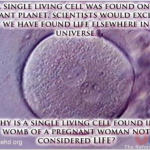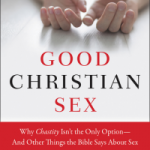I’ve spoken some about the purity movement on this blog. I grew up in it, and even when I still considered myself an evangelical Christian, I saw how much harm it had caused in my life.
I’ve written before about how I “lost” the right to call myself pure because of sexual assault and later because of my own decisions. I’ve written about how dehumanizing the purity movement is toward people like me.
But not everyone has to “do” something, or have something done to them to be considered impure by the mainstream purity movement (which is primarily made up of white evangelicals). Some women are seen as impure just because of who they “are.”
Jessica Valenti points out in The Purity Myth, “we rarely see women who aren’t conventionally beautiful idolized for their abstinence…The desirable virgin is…young, white, and skinny. She’s never a woman of color…”
When I read Valenti’s quote, I immediately think of a blog post that Kevin DeYoung wrote for The Gospel Coalition last year. DeYoung, responding to that one survey that all of evangelicalism was panicking about for a few years (which states that 80% of young, unmarried Christians have had sex), argues that the numbers this survey found are skewed.
Why?
Because African American and Hispanic were over-represented, something that DeYoung claims will “likely has the effect of skewing the numbers toward indicating greater promiscuity.”
As a result of this–and other strange justifications for dismissal–DeYoung urges his readers not to worry too much, nor to change anything about their ministry because of the “80%” statistic.
DeYoung sees this study as an attempt by pro-abortion folks to defame good, pure evangelicals. African American and Hispanic people are not included in this category.
Sure, a non-white woman in a primarily white church would likely be held to the same standards of virginity that other women were. But underneath, perceptions like DeYoung’s seem to claim that non-white people taint good Christian purity.
It’s not blatant, conscious racism (or maybe it is, but for now I’m giving DeYoung the benefit of the doubt) but a revelation that DeYoung has ingested the white supremacist notions that everyone in our society is subjected to–the stereotype of the Jezebel, of the exotic, sexualized Other, etc.
To some extent, it was a “privilege” (though not one that did me much good in the long run) for me, as a white woman, to have ever been seen as truly pure by white evangelicals. Grace from Are Women Human? talks about her experience as a black woman in the mainstream purity movement here:
The story wasn’t so simple for me. At the same time that I was being taught to equate “true” femininity with chastity and sexual reticence, I was also learning that many people I went to church with saw black women as having a habitually unchaste and voracious sexuality…The prevailing assumptions about black women stood in sharp contrast to everything I was told came naturally to “Women.”
The mainstream purity movement is primarily about politics rather than religion. It serves the prevailing systems of power–not only that of patriarchy, but that of white supremacy as well. It has stake in dehumanizing women of color, in portraying them as promiscuous and irresponsible, just as it has stake in convincing white women to be submissive, passive, and chaste. It helps perpetuate stereotypes that so often come up in political discussions (the stereotype of the black welfare queen, for example).
The purity movement helps maintain multiple hierarchies–white women under white men. People of color under white people.
According to the primarily white leaders of the Evangelical purity movement, purity is a “privilege” reserved for white woman. This “privilege” is used to dehumanize and control us, just as the absence of this “privilege” is used to dehumanize and oppress women of color in other ways.
Purity is not about sex. It’s really about how human a woman gets to be, what rights she gets to have, how she gets to be treated by men and by churches and by society. It’s about limiting white women and oppressing women of color.
We need to continue to expose the idea of “purity” for the tool of domination that it is.











